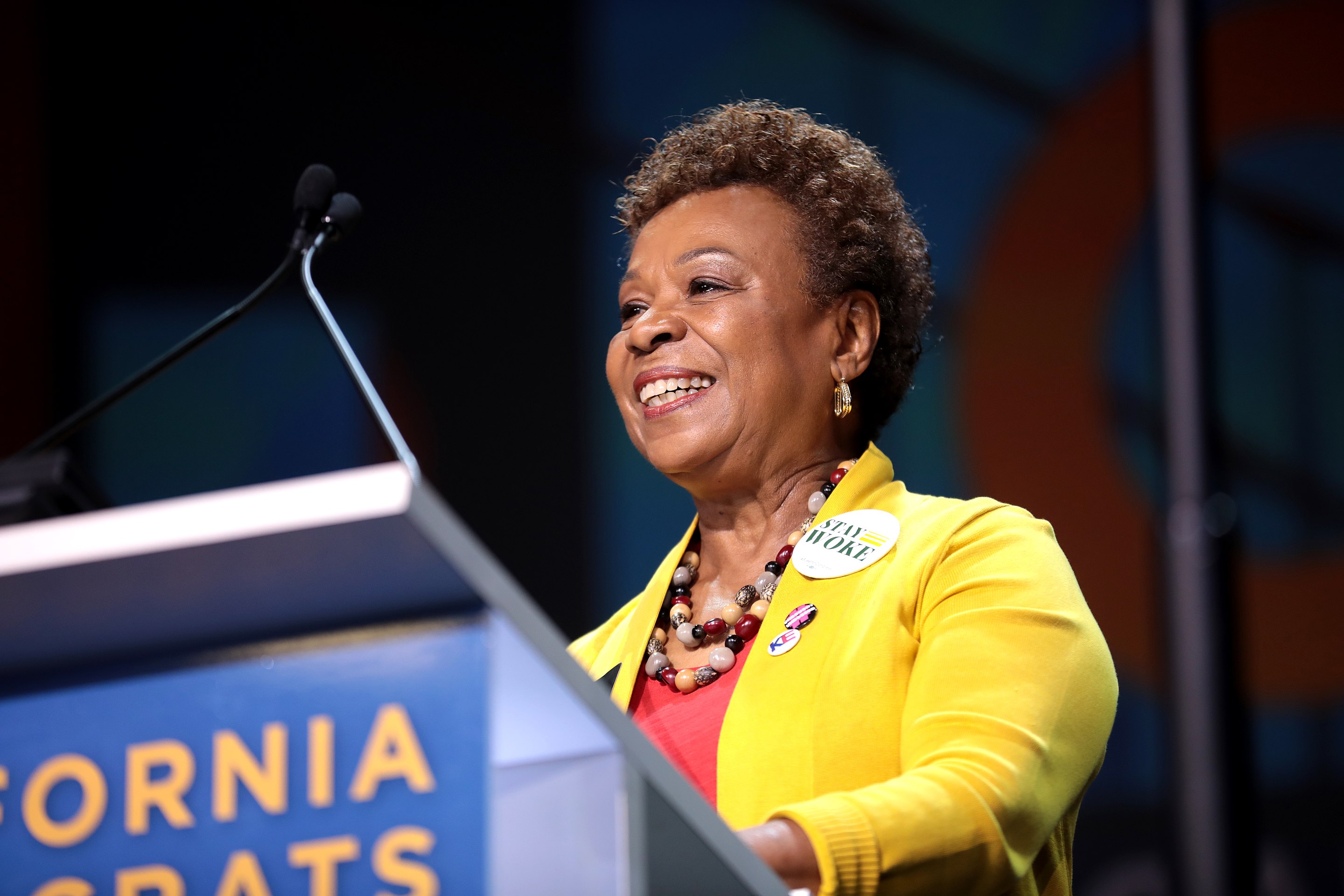by Kate Kizer
In Washington, there’s a common refrain that regular Americans don’t care about foreign policy. Yet a flurry of activity in the House of Representatives, during debate over the Fiscal Year 2020 National Defense Authorization Act (NDAA), may prove otherwise, particularly on matters of war and peace.
Last week, the House of Representatives voted on and passed some of the most progressive foreign policy measures in years. From repealing the outdated 2002 Iraq war authorization to banning U.S. military support and bombs for the war in the Yemen, the House NDAA did much to begin reversing the United States’ over-militarized foreign policy. In addition to rebuking the longstanding bipartisan consensus for a military-first approach to foreign affairs, the House also foreclosed the prospect of yet more endless U.S. war abroad by rejecting an unauthorized war with Iran.
A group of 27 Republicans joined nearly all Democrats to vote for the House provision that would prohibit funds for an illegal war with Iran, offered by progressive champion Congressman Ro Khanna (D-CA) and Trump ally Congressman Matt Gaetz (R-FL). This action was preceded by a bipartisan majority of Senators voting in support of a near-identical measure from Senators Tom Udall (D-NM) and Tim Kaine (D-VA) before the July 4th recess.
Meanwhile, a consensus has emerged in the 2020 Democratic presidential primary that returning to the Iran nuclear deal (the Joint Comprehensive Plan of Action, or JCPOA, which blocks Iran’s path to a nuclear bomb) is a necessary first step toward repairing Trump’s damage to U.S. and global security. Representatives Barbara Lee (D-CA), Jan Schakowsky (D-IL), and David Price (D-NC) bolstered that consensus this week, introducing a resolution calling for the U.S. to reenter the deal.
These actions represent a sea change from just a few years ago, when Congress was loathe to vote on ending wars—let alone voting to prevent future ones. And it’s no wonder considering that National Security Advisor John Bolton and Secretary of State Mike Pompeo, and their far-right allies, have made clear they will stop at nothing to continue barreling towards military conflict with Iran. Indeed, they have ensured Iran warmongering—in part at the behest of authoritarian leaders in Saudi Arabia, the United Arab Emirates (UAE), and Israel—is the centerpiece of Trump’s regional policy, even though it has only made the world less safe and further destabilized the region.
Team Trump’s constant warmongering on Iran has also helped galvanize a left-right coalition of grassroots activists pushing Congress to act. The coalition that pushed Congress to demand an end to U.S. involvement in the disastrous Saudi and Emirati-led intervention in Yemen has now turned its sights on preventing a new war that would make the U.S. invasion of Iraq look like a cakewalk. By working under the common understanding that the harmful effects of endless war are not limited to devastation and carnage abroad, this coalition has now successfully gotten Congress to vote on war and peace more times over the last two years than in the previous 16 years combined.
While it remains to be seen whether the—bipartisan ban on illegal war with Iran will make it into the final version of the NDAA—if there is a final version—these successful votes are a monumental step forward toward Congress reasserting its war powers and preventing the war that is the logical conclusion of Trump’s Iran policy. Given that Trump was only a television host and a few minutes away from bombing Iran just weeks ago, these votes are a welcome signal that Congress is finally listening to the American public—who, as it turns out, care deeply about foreign policy and are unequivocally opposed to a U.S. war with Iran.






Too good to be true!
Yes, the U.S. citizens may count, who?, could someone ask because the masses following Trump looks more interested in cheering racist attacks from their President. I personally think the Raytheon’s U.S. officials are finally rather listening to the more resolute European side: just look at the first meeting of the European Parliament presided this time by that brilliant European External Affairs chief Federica Mogherini. Europeans don’t believe in ‘Gulf of Arabia’ U.S. perceptions but are definitively promoting Peace on the Persian Gulf…
The Democratic party has done nothing, but to help the Ayatollahs, in its pursuit to always win elections against the Republicans. It does not consider anything that the Ayatollahs have done as inhumane, and will therefore carry on dealing with the Ayatollahs, as if they are normal people, who do not threaten Iranians at all. How awful is that?
Conversely the Republicans treat the Ayatollahs, as if they are public enemy number one, and therefore use them as a means to increase their weaponization of the Middle East and fortify their military industrial complex.
For 40 years, the Iranian nation has suffered from these two “Dr Jekyll and Mr Hyde” parties in United States, neither of whom have considered the secular Iranians as a viable alternative, for a non-violent regime change in Iran.
If United States really wants to deal with Iran, it needs to deal with intelligent secular Iranians, wherever they are. It needs to create a non-violent government in exile, as a plausible alternative, that can can create a decent future for the oldest civilisation on the planet.
Ali is a deluded old fool living in a fantasy world. Plus I’m pretty sure he’s a fake MEK person like Heshmat Alvi since he uses the same picture in everything.
Democrats supporting the mullahs. Oh yeah that’s what 40 years of threatening war and imposing sanctions looks like.
The article is good but the framework of ‘stopping war’ and ‘promoting democracy/human rights’ are mutually exclusive. When you say human rights, you mean bombing people. Plain and simple. You cannot promote human rights dialogue without some moneyed ghoul coopting your cause because the idea is an inherently empty one that seeks to transform developing countries into a kind of ideal that only exists in the minds of well-to-do Westerners which will inevitably be used to target any country that clashes with the home of 90% of these organizations: the United States.